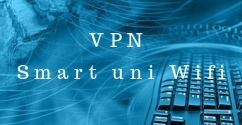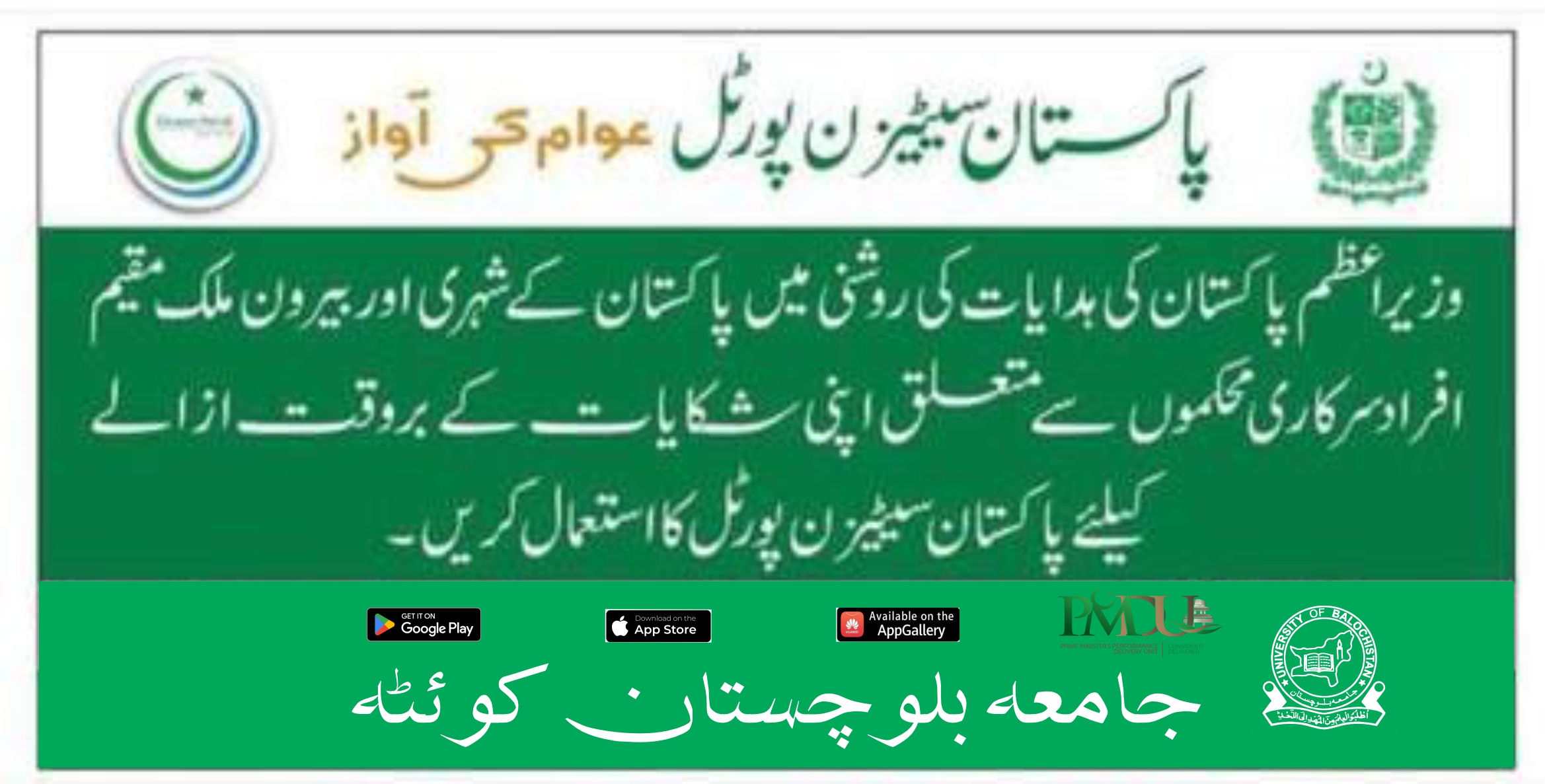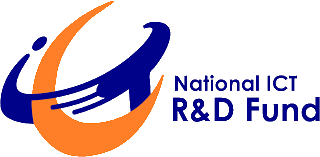 "Say No To Drugs"
"Say No To Drugs"
- About
- Admission
- Administration
- Departments
-
- Departments
- Faculty of Physical and Environmental Science
- Faculty of Arts and Humanities
- Faculty of Biological, Pharmaceutical And Health Sciences
- Dean Message
- Botany Department
- CASVAB
- Institue of Bio-Chemistry
- Department of Microbiology
- Zoology Department
- Botanical Garden
- Department of Eastern Medicine
- Department of Pharmaceutical Chemistry
- Department of Pharmaceutics
- Department of Pharmacognosy
- Department of Pharmacology
- Department of Pharmacy Practice
- Department of Physical Therapy
- Department of Pharmacy
- Faculty of Literature & Languages
- Faculty of Management and Information Sciences
- Faculty of Social Sciences
- Dean Message
- Anthropology
- Area Study Center
- Disaster Management & Development studies
- International Relations Department
- University Law College
- Political Science Department
- Social Work Department
- Sociology Department
- Gender & Development Studies
- Pakistan Study Center
- Department of Geography and Regional Planning
-
-
- Library
- Publications
- Journals
- NewsLetters
- Reports
- Prospectus
- Prospectus BS 2023
- Prospectus BS 2022
- Prospectus Masters 2021
- Prospectus BS 2020
- Prospectus Master 2020
- Prospectus BS 2019
- Prospectus Masters 2019
- M.Phil/MS & PhD Prospectus 2018
- Prospectus BS 2018
- Prospectus 2018
- Prospectus 2017
- Prospectus BS2017
- Distance Learning
- Prospectus BS2016
- Prospectus 2016
- Prospectus 2015
- Prospectus BS2015-16
- Prospectus 2014
- Prospectus 2013
- Prospectus BS2013-14
- Videos
- Convocation
- QAAD
- FTDC
- ORIC
- GSO
- UGSO
LATEST INFORMATION
FACULTY OF PHARMACY AND HEALTH SCIENCES
Rules of Pharm-D Five Years:
The course is conducted according to the rules of Pharmacy Council of Pakistan.
No student shall be allowed to sit in the next Professional Examination with out
passing the previous Prof. Examination in all subjects.
Any student who fails to pass the 1st Prof. Examination in five chances shall
cease to pursue further Pharmacy Education.
40% of the written exam shall consist multiple choice questions and the rest 60%
of short structured essays, extended essays.
A student who appears for exam in any subject and passes in theory but fails in
practical or vice versa shall reappear only in theory or in practical in which
he fails.
Rules for admission in Pharm-D:
The candidate must have passed F.Sc Pre-Medical
The candidate has to appear for the entry test conducted by NTS & qualify on
merit.
Programs of Study:
Doctor of Pharmacy, 5 years morning and Self Supporting Evening Program
Doctor of Pharmacy, one year evening condense program
M.Phil in Pharmacy Practice, Pharmacology, Pharmacognosy, Pharmaceutical
Chemistry, Pharmaceutics.
Ph.D in Pharmacy Practice, Pharmacology, Pharmacognosy, Pharmaceutical
Chemistry, Pharmaceutics.
NEW DEPARTMENTS:
Following two new departments has been established under Faculty of Pharmacy.
1. PHYSICAL THERAPY
2. DEPARTMENT OF EASTERN MEDICINE
1. PHYSICAL THERAPY
Physical therapy is a health care profession concerned with human function and
movement and maximizing potential for healthier smooth life. It uses physical
approches to promote, maintained restore physical, psychological and social
well-being, taking account of variations in health status. It is science based,
committed to extending, applying evaluating and reviewing the evidence that
underpins and informs its pratice and delivery. The exercise of clinical
judgment and informed interpretation is at its core.
The misison of physical therapy profeesional education is to graduate
kinwledgeale, service oriented practitioners who, by virtue of critical and
intergrative thinking render indepndent, evidence- bassed judgements concerning
patient needs.
1.1 SCOPE OF PHYSICAL THERAPY
The pratice of physical theraphy is the asessment, evaluaiton, diagnosis and
tratment of neuromusculoskeletal, cadiorespiratiory system of the body by
physical means for the pupose of maintenance or restoration of funtion that has
been impaired by injury or disease, for pain management and for the prommotion
of mobility and health. Praediatrics and sports injury are also dealt by
physiotherapist.
Recent development and scope is direct acess of patient by physiotherapsists for
better health care services to community.
1.2 PHYSICAL THERAPY SPECIALTIES.
•
Musculoskeletal physical therapy
•
Neurological physical therapy
•
Respiratory physical therapy
•
Cadiovascular physical therapy
•
Paediatric physical therapy.
•
Geriatric physical therapy
•
Intergumentary physical therapy
•
Womens health ( Gynaeocology and obstetirics)
•
Sport physical therapy.
1.3 EMPLOYMENT OPPORTUNITIES
Job opportunities for physical therapists are excellent in Pakistan as well as
abroad. It is the second highly paid profession.
Average physical therapist salaries nation wide are 26% higher then average
salaries for all jobs. They can be work as;
• Clinician self employment by independent practice
• Teaching as lecturer
• Hospitals
• Rehabilitation centers and schools.
•; Industries
• Sport clinic
• Fitness centers
•; Government sectors and heath care department ( BPS-17)
1.4 Rules
• The duration of the degree course is 5 years.
• The candidate must have passed F.Sc Pre-Medical
•; The candidate has to appear for the entry test conducted by NTS & qualify on
merit.
CURRICULUM AND YEAR WISE COURSE DETAILS DOCTOR OF PHYSICAL THERAPY (DPT) SCHEME OF STUDIES
First Year
|
S. No |
Subject title |
Theory Marks |
Practical / Viva /Clinical Marks |
Total Marks |
|
1. |
Anatomy -I |
100 |
100 |
200 |
|
2. |
Physiology-I |
100 |
100 |
200 |
|
3. |
Kinesiology |
100 |
100 |
200 |
|
4. |
Bio Chemistry & Genetics -I |
100 |
Not Applicable |
100 |
|
5. |
English |
100 |
Not Applicable |
100 |
|
6. |
Introduction to computer |
100 |
Not Applicable |
100 |
|
|
Total |
600 |
300 |
900 |
Second Year
|
S. No |
Subject title |
Theory Marks |
Practical / Viva /Clinical Marks |
Total Marks |
|
1. |
Anatomy -II |
100 |
100 |
200 |
|
2. |
Physiology- II |
100 |
100 |
200 |
|
3. |
Biomechanics & ergonomics |
100 |
100 |
200 |
|
4. |
Bio Chemistry & Genetics -II |
100 |
Not Applicable |
100 |
|
5. |
Exercise Physiology |
100 |
Not Applicable |
100 |
|
6. |
Sociology & health and wellness |
( 50+50 )=100 |
Not Applicable |
100 |
|
7. |
Medical Physics |
100 |
Not Applicable |
100 |
|
8. |
Islamic studies & Pakistan studies |
( 50+50 )=100 |
Not Applicable |
100 |
|
|
Total |
800 |
300 |
1100 |
Third Year:
|
S. No |
Subject title |
Theory Marks |
Practical / Viva /Clinical Marks |
Total Marks |
|
1. |
Pathology & Microbiology |
100 |
100 |
200 |
|
2. |
Pharmacology |
100 |
100 |
200 |
|
3. |
Physical agents and Electrotherapy |
100 |
100 |
200 |
|
4. |
Therapeutics Exercise & Techniques |
100 |
100 |
200 |
|
5. |
Manual Therapy |
100 |
100 |
200 |
|
6. |
Evidence based & Proposal practices |
100 |
Not Applicable |
100 |
|
7. |
Behavioral sciences |
100 |
Not Applicable |
100 |
|
|
Total |
700 |
500 |
1200 |
Fourth Year:
|
S. No |
Subject title |
Theory Marks |
Practical / Viva /Clinical Marks |
Total Marks |
|
1. |
Medicine including supervised Clinical practice I & II |
100 |
200 |
300 |
|
2. |
Clinical decision making & Deferential diagnosis |
100 |
100 |
200 |
|
3. |
Physical agents and musculoskeletal physical therapy including clinical practice III |
100 |
200 |
300 |
|
4. |
Neurological physical therapy including clinical practice IV |
100 |
200 |
300 |
|
5. |
Community medicine & research methodology |
100 |
Not Applicable |
100 |
|
6. |
Prosthetics & Orthotics , Human development & Community based Rehabilitation |
(50+50)=100 |
Not Applicable |
100 |
|
|
Total |
600 |
700 |
1300 |
Final Year:
|
S. No |
Subject title |
Theory Marks |
Practical / Viva /Clinical Marks |
Total Marks |
|
1 |
Cardiopulmonary physical therapy including supervised clinical practice-V |
100 |
200 |
300 |
|
2 |
Emergency procedures & primary care in physical therapy |
100 |
Not Applicable |
100 |
|
3 |
Surgery & integumentary physical therapy including supervised clinical practice VI |
100 |
200 |
300 |
|
4 |
physical therapy in practice and Gyne & Obstetrics |
100 |
100 |
200 |
|
5 |
Gerontology # geriatric physical therapy |
100 |
Not Applicable |
100 |
|
6 |
Sport physical therapy |
100 |
Not Applicable |
100 |
|
|
Total |
600 |
500 |
1100 |
DEPARTMENT OF EASTERN
MEDICINE
Eastern Medical Education aims at producing competent eastern medicine (tibbi)
physicians. Such physicians, with practical training based on scientific
knowledge of modern diagnostics and Tibbi fundamentals will be able to take
up responsibilities in health services.
Pakistan is not the only country teaching such courses. Many developed
countries have adopted the concept of alternative medicine. In Japan, it is
called 'Kampo' that has a society that exceeds more than 10,000 members. In
India and China, they have specialized hospitals where patients are treated
with herbal medicines.
In this situation, the quest for an alternative system of medicine always
remained in the minds of health specialists. As a result of continuous
efforts, the National Council for Tibb (NCT) a regulatory and registration
authority for Eastern Medicine was established. NCT helped in improving
tibbi medicine and the registration of eastern medicine (tibbi)
practitioners.
The objective behind this program is to prepare batches of knowledgeable and
committed eastern medicine practioners Tabibs who could become agents of
change by fulfilling healthcare needs of the masses based on centuries old
wisdom and expression of tibb.
PROGRAM OFFERED
Bachelor of Eastern Medicine and Surgery (BEMS)
2.1 OBJECTIVES
Train eastern medicine (Tibbi ) graduates capable of treating ailing persons
through modern diagnostic techniques and with time tested remedies of
Eastern Medicine.
Prepare eastern medicine (Tibbi) clinicians to demonstrate professional
skills through standard curative, preventive, and promotive interventions.
Produce qualified eastern medicine (Tibbi ) prctioners to understand
temperament, body humors, disease process and to treat patients with
confidence and kindness.
Integrate basic medical knowledge with diagnostic skills and eastern
medicine (Tibbi ) therapeutics and pharmacognosy.
Plan and carry out research in Eastern Medicine aimed at health promoting
and disease curing, based on principles of tibb.
Support National Health System by assisting/supervising/contributing in the
areas of Safe Food & Nutrition, Maternal Child Health, Health Education,
Family Planning, Sanitation, Safe Water, and Clean Environment.
Produce qualified graduates with knowledge of Eastern Medicine in tandem
with latest technologies for diagnosis and modern methods of treatment and
healthcare.
2.2 SCOPE
It is worthwhile to note that the number of eastern medicine manufacturing
units in the country is more than 400. They are producing and marketing
thousands of herbal products in the market. Recently the regulation of
Alternative medicine has been established and implementation has bee
started. Apart from that, hundreds of eastern medicine Clinics / Matabs/
Dispensaries, both in public and private sectors, are functional. Therefore
the need for qualified and competent eastern medicine (Tibbi ) physician /
hukama is fast increasing.
Following are some of the areas where job opportunities for qualified
eastern medicine (Tibbi ) physician exist:
General Practice / Private Practice: Set up a private clinic as practice as
Registered eastern medicine (Tibbi ) physician Practitioner, authorized to
prescribe eastern ( Tibbi) Medicine.
Teaching Career: Appointed as lecturer/instructor in Tibbi institutions,
Deptts. of Eastern Medicine, etc.
Appointed as Registered eastern medicine (Tibbi ) physician Practitioner in
any private institution as a recognized tibbi practitioner.
Appointed as a scientific officer, research officer, in quality assurance,
production, etc. in eastern medicine (Tibbi) pharma industry, as Sales
officer, Product Promotion Officer of tibbi pharmaceutical industry, etc.
and as Food & Nutrition Education Officer, Food Supervisor, Food Inspector
in Govt., Semi Govt., and Private sectors.
2.3 Criteria and requirements
The duration of the degree course is 5 years.
The candidate must have passed F.Sc Pre-Medical
The candidate has to appear for the entry test conducted by NTS & qualify on
merit.
|
CURRICULUM FOR BEMS
|
||||||||||||||||||||||||||||||||||||||||||||||||||||||||||||||||||||||||||||||||||||||||||||||||||||||||||||||||||||||||||||||||||||||||||||||||||||||||||||||||||||||||||||||||||||||||||||||||||||||||||||||||||||||||||||||||||||||||||||||||||||||||||||||||||||||||||||||||||||||||||||||||||||||||||||||||||||||||||||||||||||||||||||||||||||||||||||||||||||||||||||||||||||||||||||||||||||||||||||||||||||
News & Events
VPN & Smart WIFI
VPN Forms and detailed
procedure.
Smart University WIFi Forms
and detailed procedure.
Examination
Examination Notifications.
Roll Number Slips.
Result Notifications.
Viva & Seminars.


.jpg)



